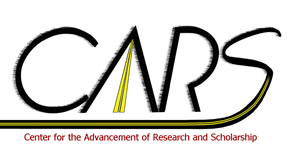Transforming Failure into Success: The Power of Cognitively-Based Teacher Feedback
Location
Hart 115
Start Time
11-5-2017 11:20 AM
End Time
11-5-2017 11:50 AM
Description
This presentation provides cognitively-based strategies for maximizing student learning outcomes by helping students develop a growth mindset, providing transformative feedback, reframing perceptions about mistakes and failures, conducing item-by-item analysis of student performance, and by utilizing office hours in novel, more effective ways. Recent brain research shows that mistakes and setbacks, if analyzed and used effectively, can provide powerful opportunities for learners to develop self-regulation skills that help them realign their efforts and improve learning outcomes. Focused constructive feedback can be an effective tool for enabling students to develop awareness about the nature of their effort, their mistakes, and their own learning process. Effective feedback helps students grow new neural connections; and develop self-refection, self-assessment skills, and self-monitoring skills. This set of neurocognitive skills will be the trajectory for developing personal goals and practical procedures for transforming the student’s areas of need into areas of strength.
Transforming Failure into Success: The Power of Cognitively-Based Teacher Feedback
Hart 115
This presentation provides cognitively-based strategies for maximizing student learning outcomes by helping students develop a growth mindset, providing transformative feedback, reframing perceptions about mistakes and failures, conducing item-by-item analysis of student performance, and by utilizing office hours in novel, more effective ways. Recent brain research shows that mistakes and setbacks, if analyzed and used effectively, can provide powerful opportunities for learners to develop self-regulation skills that help them realign their efforts and improve learning outcomes. Focused constructive feedback can be an effective tool for enabling students to develop awareness about the nature of their effort, their mistakes, and their own learning process. Effective feedback helps students grow new neural connections; and develop self-refection, self-assessment skills, and self-monitoring skills. This set of neurocognitive skills will be the trajectory for developing personal goals and practical procedures for transforming the student’s areas of need into areas of strength.

Comments
Moderator: Maura Rosenthal